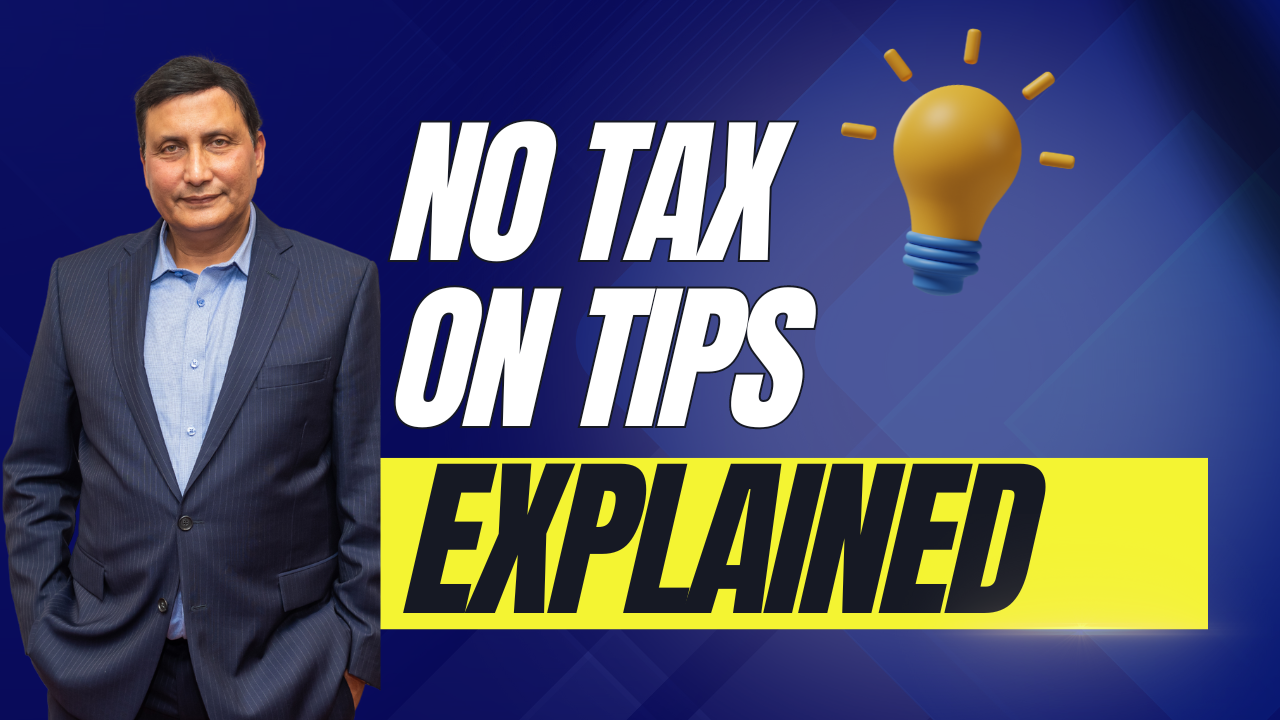
In the political arena, 2024 has been nothing short of dramatic. With major political shifts, including Joe Biden dropping out of the presidential race and Kamala Harris emerging as the new Democratic frontrunner, policy proposals are flying from all directions. One of the most intriguing proposals comes from former President Donald Trump, who has promised significant changes to how tips are taxed if he is elected again. Given the importance of tips for many workers' incomes, understanding this proposal is crucial. Let's break down what Trump's new tax proposal on tips entails, the potential impact, and what it could mean for millions of Americans.
Currently, tipped employees—such as servers, bartenders, and salon workers—report their tips as income, which is then subject to federal income tax. The process works like this:
Reporting Tips: Employees are required to report their tips to their employers, who then withhold the appropriate amount of tax from their regular paychecks.
Tax Responsibility: Employers must also pay their share of Social Security and Medicare taxes on both the employees' regular wages and their reported tips.
This system ensures that both employees and employers are fulfilling their tax obligations, but it has also been criticized for being cumbersome and sometimes unfairly burdensome on those who rely on tips for a significant portion of their income.
Trump’s new tax proposal introduces several significant changes:
Complete Elimination of Taxes on Tips: Trump has proposed to eliminate taxes on tips entirely. During his acceptance speech at the Republican National Convention, he emphasized this as a part of his broader economic relief plan. This would mean that workers who receive tips as part of their income would no longer have to pay federal income tax on those tips.
Potential Tax Deduction System: If tips are no longer taxed, workers would still report their tipped income, but they could receive a tax deduction that removes tipped income from taxable income. For instance, if a bartender earns $20,000 in wages and $50,000 in tips annually, they would report $70,000 in total income. However, under the new proposal, they would only be taxed on the $20,000, not the full $70,000, resulting in significant tax savings.
Wide Range of Affected Workers: This proposal would benefit a wide variety of workers who rely heavily on tips for their income, including servers, bartenders, hairdressers, cab drivers, and casino dealers, among others. For many, tips constitute the majority of their earnings, and this tax elimination could be a financial game-changer.
The potential benefits of Trump's proposal are substantial, particularly for tipped workers:
Significant Tax Savings: For many tipped workers, the proposed elimination could mean substantial tax savings. In the example above, a worker would move from the 22% tax bracket down to the 12% bracket, saving tens of thousands of dollars annually.
Increased Disposable Income: By not taxing tips, the disposable income of tipped workers would increase, potentially boosting spending in other areas of the economy.
More Attractive Tipped Jobs: The elimination of tip taxes could make tipped jobs more attractive compared to non-tipped jobs, potentially prompting a shift in employment patterns.
While the proposal presents several potential benefits, it has also faced significant criticism:
Reduction in Federal Revenue: Critics argue that eliminating tip taxes could reduce federal tax revenue by $150 to $250 billion. This shortfall could force the government to find alternative revenue sources or make substantial cuts to public services.
Possible Increase in Other Taxes: To offset the loss in revenue, Trump has floated ideas such as increasing tariffs on imported goods. However, this could lead to higher prices for consumers, effectively offsetting some of the benefits of the tax cut on tips.
Skepticism Over Motivations: Some skeptics believe that the proposal is more about securing votes from the millions of tipped workers in the upcoming election rather than genuine tax reform. They point out that more than a third of tipped workers already pay no federal income taxes due to low annual earnings.
Uncertainty in Implementation: As Trump has not yet won the election or passed any laws regarding this proposal, it remains uncertain how this plan would be implemented or enforced. There are questions about whether the policy is feasible and how it might interact with existing tax laws.
The proposal could have far-reaching economic and social implications:
Shift in Employment Trends: If a bill is passed that eliminates taxes on tips, more people might seek jobs in the service industry to benefit from the tax break. For example, a teacher earning $70,000 a year and paying full taxes might consider switching to a job where they can earn a significant portion of their income as tax-free tips.
Potential Impact on Government Spending: To compensate for lost revenue, Trump has suggested cutting government spending. However, this could impact public services and programs. The Government Accountability Office has highlighted substantial waste in government spending, suggesting that reducing inefficiencies could be another way to balance the budget without raising taxes.
Broader Political Context: Trump's proposal is part of a broader set of economic policies, including potentially abolishing federal income taxes altogether in favor of tariffs. This radical approach indicates significant changes in tax policy should he be re-elected, adding to the uncertainty of the proposal’s future.
Trump's proposal to eliminate taxes on tips is bold and could dramatically alter the financial landscape for millions of tipped workers. However, it also raises critical questions about federal revenue, government spending, and economic fairness. While the plan promises substantial tax relief for tipped workers, its broader implications are complex and uncertain.
As with any significant policy change, it is crucial to stay informed and consider all perspectives. Whether you are a tipped worker, an employer, or just a concerned citizen, understanding these changes is vital for navigating the potential shifts in the economic landscape. Stay tuned for further developments and remember to consult with a tax professional to understand how these changes might impact your personal situation.